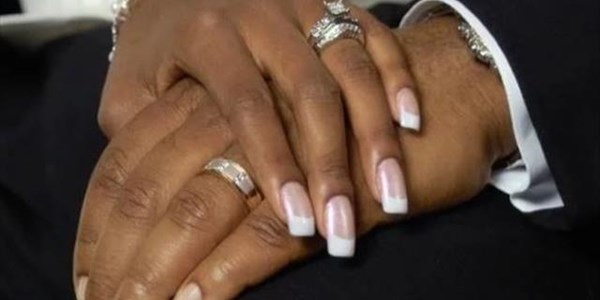General
Women in customary marriages now have equal proprietary rights─── 13:22 Thu, 01 Aug 2019

The Government has approved amendments to the Recognition of Customary Marriages Act. The changes will give women who entered into monogamous or polygamous customary marriages equal rights to marital property.
According to a statement on gov.za, Cabinet has this week approved the submission of the Recognition of Customary Marriages Amendment Bill of 2019 to Parliament.
Section 7(1) and (2) of the Recognition of Customary Marriages Act (RCMA), 1998 (Act 120 of 1998) discriminated unfairly against women in customary marriages, but were declared constitutionally invalid and have now been brought in line with the judgment of the Constitutional Court in 2017.
The Bill also provides for the equal treatment of women in pre-Act monogamous and polygamous customary marriages.
Children also benefit
The amendments eliminate the gender-based discrimination in polygamous marriages entered into before the commencement of the RCMA of 1998. Spouses will now have joint and equal proprietary rights over marital property.
This means that husbands will no longer have exclusive proprietary rights over marital property to the detriment of their wives. Children can also benefit as they will be able to inherit from the mother as well.
Essentially, the amendment will give women who entered into a customary marriage before 1998 equal marital property rights.
"This is a great step forward for equality in South Africa. Customary laws have long needed to evolve and be balanced against the Constitution to ensure fairness for all involved in the marriage," says Adv. Jackie Nagtegaal, Managing Director at LAW FOR ALL.
Challenging to prove that the couple legally married
According to the legal experts at LAW FOR ALL, a customary marriage is a "union that is negotiated, celebrated and concluded in terms of indigenous African customary law".
LAW FOR ALL explains that while paying lobola is essential, it is also important that the necessary traditional rituals and celebrations take place as soon as possible. "From a legal perspective, this is critical because should the couple get divorced or a spouse pass away, it could be challenging to prove that the couple legally married."
They use the example of Lerato Sengadi, widow of local hip-hop star HHP, who found herself in a legal battle with her late husband’s family in 2018 when his family claimed that they didn’t consider her his widow, as certain rituals weren’t completed.
The family said that the bride’s clan hadn't paid lobola and so she wasn’t officially “handed over”. The judge found that the lobola was fixed, and the couple met all the requirements under the Customary Marriage Act, ruling in favour of Sengadi.
Customary marriages must be registered at the DHA within 3 months
Aside from lobola being settled, both spouses must be consenting adults over the age of 18, and not already in a civil marriage. LAW FOR ALL explains that customary law does allow polygamy, but the groom will only be allowed to legally marry another bride if the High Court has given an order that regulates the matrimonial property system of the marriages.
Finally, a customary marriage must be registered at the Department of Home Affairs within 3 months of all the proceedings. A marriage certificate will be issued and serves as written proof of the couple’s marital status.
To register a customary marriage, the couple needs to take copies of IDs and a lobola agreement letter, if available and a representative, or witness, of each of the families to Home Affairs.
Registration will greatly assist in any future legal disputes
Failure to register a customary marriage does not invalidate the nuptials, but registration will greatly assist in any future legal disputes.
LAW FOR ALL notes that a customary marriage is automatically considered to be in community of property. "This means that all the assets and debts from before the marriage are shared in a joint estate between spouses."
"When couples are married in community of property, their separate estates are combined, and each spouse loses the right to dispose of assets as they wish or acquire debt without the others knowledge and consent."













